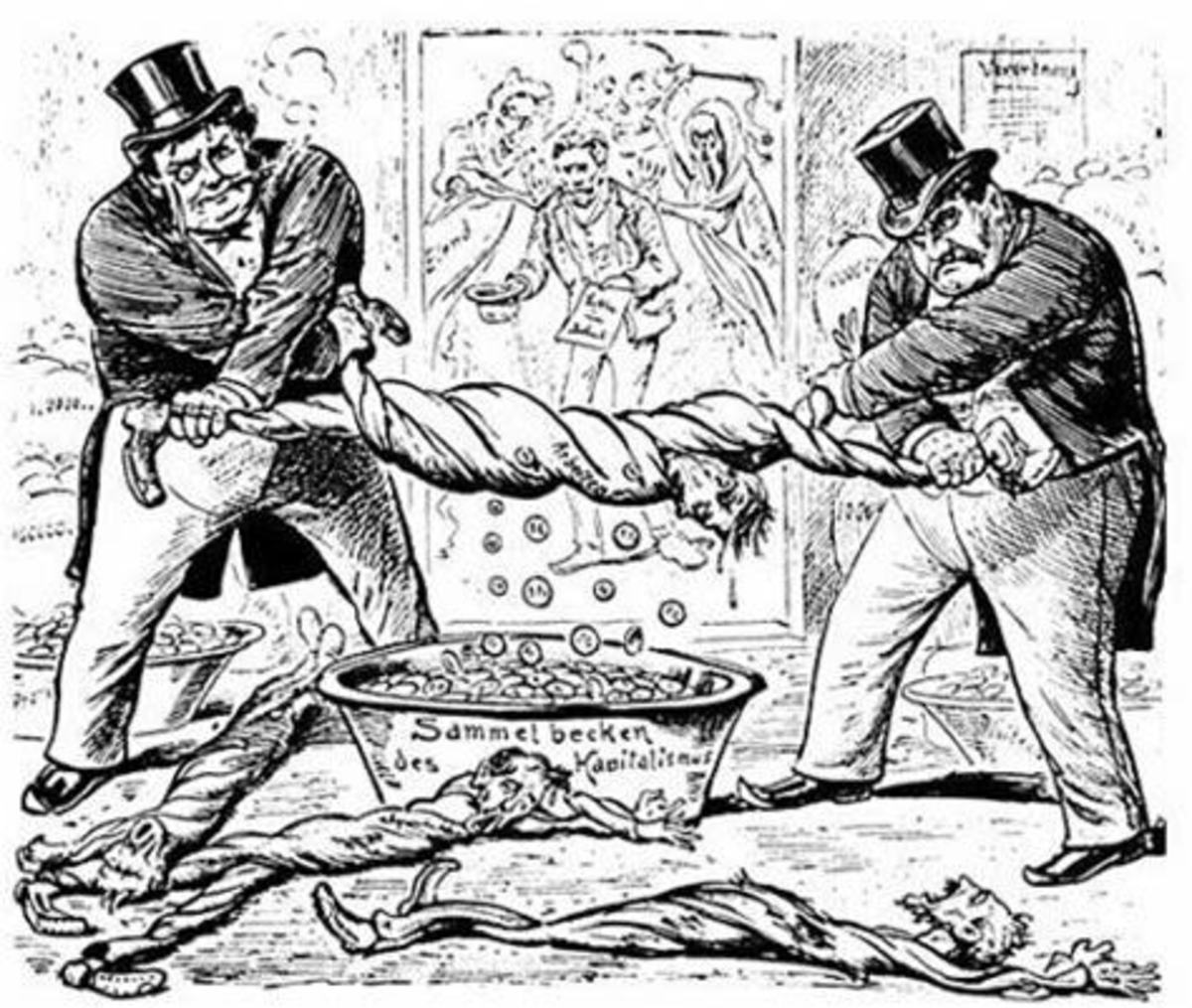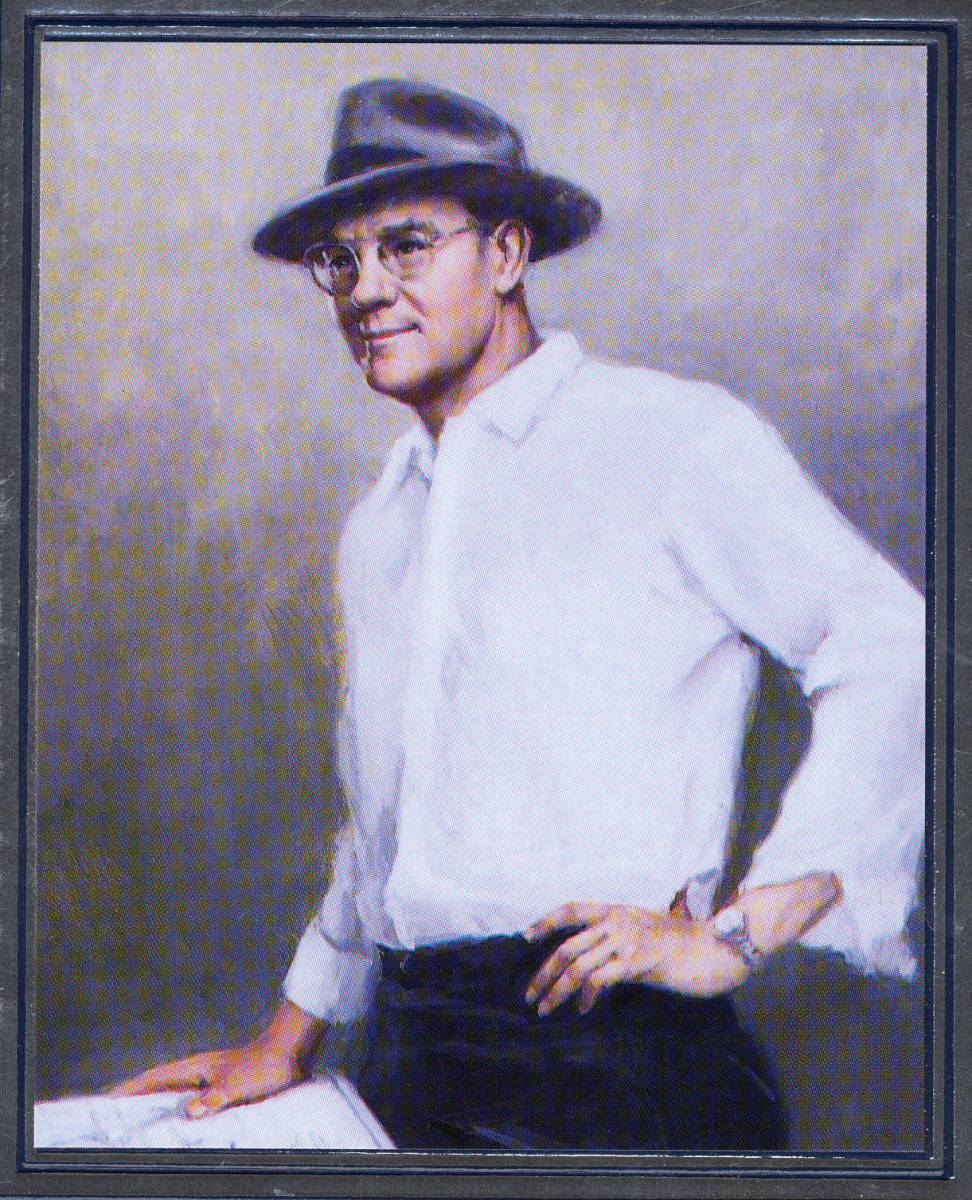The History of Business Management by Melinda Longoria, MSM
The History of Business Management by Melinda Longoria, MSM.
Where did the history business management originate? In history, who were the early writers of business management and what were their theories? What major publications have contributed to business management?

Origin of Management-Like-Thought
Management has been around for many millennia. In fact, management-like-thought can be traced to Sumarian traders and the builder's of pyramids in ancient Egypt, and beyond. The Ubaidians, of Sumer, were the first civilization to create agriculture, develop trade, and even establish industries. Their industries included basket weaving, leather-work, metalwork, masonry, and pottery.
"No people has contributed more to the culture of mankind than the Sumerians" - Sumerologist Samuel Noah Kramer.

After reading my introduction...
Are you excited to read more about Business Management?
Through the centuries, there has been a lack of knowledge in how to identify and solve management problems using step-by-step procedures. These management problems have been evident where it pertained to uncooperative workers in slavery and also with pre-industrial enterprises. However, after the creation of numeral systems and new book-keeping methods, managers now had a way to provide assessment, planning, and control. Before the industrial revolution, most business owners handled their own management functions without formal record-keeping and recording. As businesses began to grow in size, and changes developed in the types of ownership of organizations, day-to-day managers were needed to plan and control.
Modern writers have molded management theories by their vast background of works. The study and science of management is fairly new today, and therefore the field is still blossoming. It is a difficult task to consolidate a complete list of every early pioneer of management. Therefore, this article will provide a few prominent management writers and philosophers. I encourage you to utilize the comments function, below, to outline and discuss any management theorist that you appreciate or that I might have skipped.
Management from Early Writing
- Ancient military texts - have been looked to as a source for direction that managers can learn from. The Art of War is a military strategy book, written by Sun Tzu, a high-ranking general, which came to be known as the authority on military strategy and tactics of the time. In his book, The Art of War, Sun Tzu advocates having an awareness of the strengths and weaknesses of a manager's organization, and that of his competition.
The Prince
- "Mirrors for Princes" - created by medieval civilizations were written to assist new monarchs how to manage their kingdom's affairs. "The Prince", by Italian author Niccolò Machiavelli, is a mirror of his time. Machiavelli recommended that leaders use fear, but not hatred, to maintain control because he believed that people were motivated by self interest. Some say that Machiavelli invented modern politics. He dissected the world of politics and history. Attributed to Machiavelli is the idea that "The end justifies the means". He justifies the means of harsh or deceitful conduct as necessary to the common good. He was a realist, familiar with the moral ambiguities of power.
The Wealth of Nations
- Moral philosophy - had a huge impact on the field of management in the study of what's right and wrong, or good and bad, what human beings are aiming for, and what they aspire to become. "The Wealth of Nations", written by a Scottish moral philosopher, Adam Smith, set out to create an efficient organization by division of labor through specialization. "Division of labor is associated with the growth of total output and trade, the rise of capitalism, and of the complexity of industrialized processes" - Wikipedia. Additionally, Adam Smith gave lectures that took you from moral philosophy through law to economics. His book, "The Wealth of Nations" is written on economics and is considered the founding text in the field. This book also set the tone for social science. Governments relied on the text for information on what to do about the economy.
Management from Early Writing
Have you read any of the above books? Which one would you recommend to my readers?
19th Century Management
By the 19th century, management development in industrialization was centered around molding skilled craftsman into factory workers. For the first time, in history, managers who are paid salaries can be identified as a notable group.
- John Stuart Mill and Adam Smith, who were both classical economists, were essential to providing an abstract view of resource-appointment, manufacturing, and pricing issues. John Stuart Mill is known for his works On Liberty and Utilitarianism. He is one of the most famous Utilitarian philosophers. His writings suggested that actions were right, as they pertained to the production of happiness.
- Around the same time period, Eli Whitney, James Watt, and Matthew Boulton (innovators) developed the scientific aspects of manufacturing, such as: the process of developing and implementing technical standards, quality control procedures, cost accounting, interchangeability of parts, and planning of work.

20th Century Management
In the beginning of the twentieth century, management theorists are found trying to pinpoint a thoroughly scientific basis for their ideas.
General and Industrial Management
- Theory of Administration - Henri Fayol was a French engineer, and director of mines, who was recognized for his theories on administration management, which was known as "Fayolism". He is considered one of the most influential contributors to modern management science, as a discipline. His major publication was the "Administration Industrielle et Generale". Henri proposed that there were five main functions of management, which are to forecast and plan, to organize, to command, to coordinate, and to control. He also outlined fourteen principles of management, which are division of work, authority, discipline, unity of command, unity of direction, subordination of individual interest, remuneration, centralization, scalar chain, order, equity, stability of tenure of personal, initiative, and espirit de corps. His work is timeless and is relevant to contemporary management.
Taylorism
- Father of Scientific Management - Frederick Winslow Taylor, or F.W. Taylor, an American mechanical engineer, is known as the "Father of Scientific Management". He is most famous for the "Taylorism" ideas of organized efficiency in his work, The Principles of Scientific Management. He was the first efficiency expert pertaining to the improvement of industries. In fact, F.W. Taylor is considered one of the intellectual leaders of the Efficiency Movement. He was the first thought leader to suggest that we can treat work as a science, by analyzing and reconstructing it in a new and more efficient way. Taylor became a consultant for the steal manufacturing industry to speed up production. He divided jobs into tasks and then timed each task for efficiency. F.W. Taylor helped to develop high-speed cutting tools and was extremely instrumental in the Progressive Era, of his time.
- Revolutionized American Industry - Henry Ford, an American Industrialist created mass production, the famous Model T automobile, and the V8 engine, which revolutionized the American transportation industry. He is remembered for his "Fordism" idea for mass production of cheaply made products along with augmented wages for workers. "Fordism" is a concept of a contemporary economic and social system established from an industrialized and standardized constitution of mass production. Ford created the five dollar day, which was twice the wages paid by competitors, to enhance the lives of his workers. Henry Ford's vision of a common man procuring his own vehicle led to a middle class in society.

Frank and Lillian Gilbreth
- Time and Motion Study - Frank Bunker Gilbreth, Sr. along with his wife, Lillian Evelyn Moller–Gilbreth, both introduced time and motion study to industry. They both were also early supporters of Frederick Taylor's scientific management theories. Their son, Frank Gilbreth, Jr., was the author of Cheaper by the Dozen. Frank Gilbreth began his career as a young building contractor and sought ways to make the trade faster and easier. Lillian is considered to be the first working female engineer with a PhD. Lillian studied the work habits of manufacturing and clerical jobs, in many industries, to develop ways to maximize output and make their work easier. Both of their backgrounds combined, helped them to write Applied motion study which is a collection of writings on achieving maximum productivity to industrial preparedness. Gilbreth's studies had a lasting impact on the medical field and government militaries around the world.
Mary Parker Follet
- Mother of Scientific Management - Mary Parker Follett was an American social worker, management consultant, and an early thinker and pioneer in the fields of organizational conduct and theory. Follett was considered as the "mother" of Scientific Management, conflict resolution, and a pioneer of organizational behavior. She was an active supporter for community centers where the public could congregate. Mary Follett's writings were about giving power to the people, human interactions, beliefs and guiding principles of politics, psychology, organizational conduct, and conflict resolution. She was known for discouraging a strong boss, or top-down hierarchy, over-managing, and micromanaging workers. Instead, she contributed greatly to the win-win philosophy by believing in the power of the group, rather than individual, as well as a democracy. Her idea of swapping positions between follower and leader helped to increase production by promoting the power of expertise, regardless of the source. By focusing on human relationships, Follett was able to add a humanizing factor to the workplace, which in tern contributed to employee productivity, health, happiness, and retention. Her books include: The new state, The Speaker of the House of Representatives, The Early Sociology of Management and Organizations: The Collected Papers of Mary Parker Follett, and Freedom and Co-Ordination (RLE: Organizations): Lectures in Business Organization.
- Bureaucracy - Max Weber was a German sociologist, philosopher, and political economist who's greatest contribution was his outline of "bureaucracy" of the most modern and efficient way of organizing. In Weber's Bureaucracy, he advocated division of labor, managerial hierarchy, formal selection, career orientation, formal rules and controls, and impersonality. Bureaucracy was a reaction to the more cruel administration systems, such as monarchy and dictatorships, where decisions effecting all were made solely by one person. Weber believed that the working class could produce leaders, as well as followers. He sought to put an end to exploitation to employees and therefore provide equal treatment for all. Today, any dealings of organizations, no matter how large or small are bureaucratic to some degree.
- The Human Relations Movement - An Australian psychologist sociologist, and theorist, George Elton Mayo is considered as the creator of the Human Relations Movement by emphasizing the importance of human and social factors. George Mayo is best known for his industrial psychology research comprising of the Hawthorne Studies and also for his books, The Human Problems of an Industrial Civilization and The Social Problems of an Industrial Civilization. He suggested that workers should be treated as a group, rather than individually, and also that an individual feels the need to belong to a group. Mayo's instructions remain influential today. George Mayo taught at the University of Queensland before relocating to the University of Pennsylvania and then finishing his career life at Harvard Business School as an industrial research professor.
Towards the end of the twentieth century, six separate branches of management existed:
- human resource management
- operations management or production management
- strategic management
- marketing management
- financial management
- information technology management responsible for management information systems
21st Century Management
In the 21st century, people started to think in conjunction with different processes, tasks, and objects based on management. Public and educational administration and management existed in relation to nonprofits and the government. Due to the management problems of civil society organizations, programs were created in nonprofit management and social entrepreneurship. Business ethics, critical thinking studies, and anti-corporate activism have all questioned the theories of management. Therefore, management functions have been distributed among workers as a result of workplace democracy.
Democracy in the Workplace
- Workplace democracy - this idea came about by questioning the way that we organize business. By the 1960s, many business began to notice the negative effects of control by a small group of people was groupthink, turnover, and loss of morale due to misguided, uninformed, or poorly thought out decisions. Workplace democracy is the notion that all employees should participate equally, rather than just a board of directors, in the proposal, development, and creation of voting systems, debates, democratic structuring, due process, adversarial process, systems of appeal in the workplace. They decide what, how, and where to produce; as well as what to do with the profits. Maverick, a book by Ricardo Semler, used total quality management to grow his Brazlian manufacturing firm, Semco, into a strictly democratic business whereby the employees interviewed and elected managers, decisions were subject to all employee review, debate and vote, and justification by all employees to their peers were expected. To some degree, all management embraces a democratic principle.
Despite the workplace democracy movement, command-and-control hierarchy structures continue to exist as the standard organization structure. One type of evidence of command-and control organizations can be seen during layoffs where more management are let go than front line workers. However, some organizations have rewarded management after the layoffs of lower-level employees.
In 2001, Daniel Pink published the book, Free Agent Nation: The Future of Working for Yourself, saying that people did not need businesses to employ them. A few years later, many of his followers are pink-slipped, so his theory proves to be a good thing.
How well do you know the history of business management?
view quiz statisticsPlease rate this article:
Sources:
- Asiado, Tel. 19th Century Pioneers of Management and Their Contributions. Retrieved from http://suite101.com/a/19th-century-pioneers-of-management-and-their-contributions-a304565 on October 10, 2013.
- Bedeian, Aurthur G. & Wren, Daniel A. The Evolution of Management Thought; Sixth Edition. Hoboken, NJ: John Wiley & Sons, 2009.
- Ratra, Dr. Avinash. Modern Management; Diversity, Quality, Ethics, and the Global Environment. Darya Ganj, New Delhi: Global India Publications, 2009.
- Wikimedia Foundation. Management. Retrieved from http://en.wikipedia.org/wiki/Management on October 09, 2013.




















